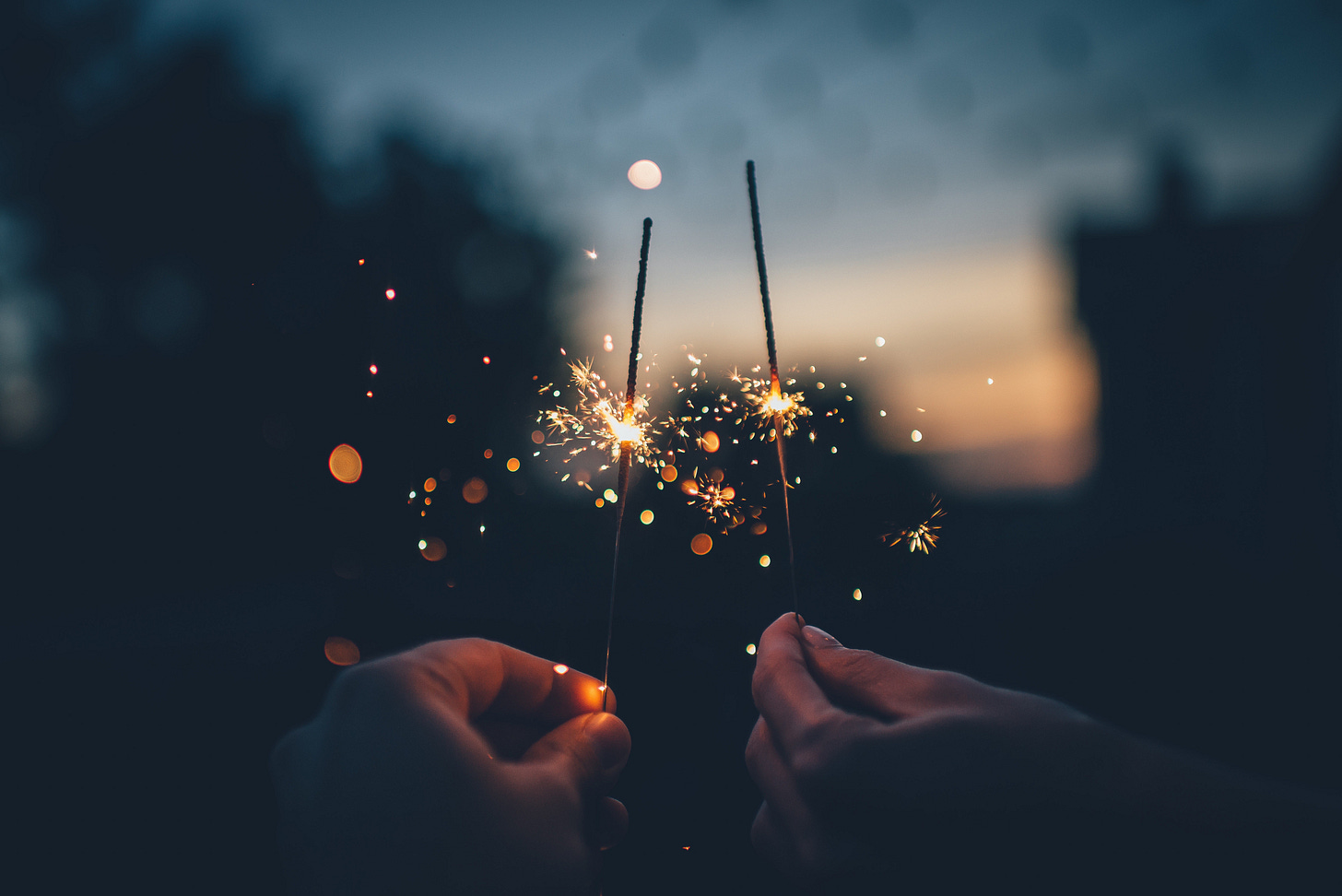Issue #17: Celebration and Belonging
“Remember to celebrate milestones as you prepare for the road ahead.” — Nelson Mandela

I saw an excellent term to describe what we are all living through these days: omni-crisis. Between a global pandemic, anti-racist uprisings against police brutality met with even more police brutality, five lynchings in the last week, and an economic recession that will likely worsen after July, our hair on fire plate is overflowing. I imagine that I’m not alone in feeling despondent, terrified, and overwhelmed by this omni-crisis that shows no sign of abating anytime soon. Which is why it’s even more important to find cause for celebration.
In BC (before coronavirus) times, we often reserved celebration for those life events worthy of showing and sharing with other people: birthdays, weddings, baby showers, graduations. Like the great man concept of leadership, we act as though celebration has to recognize and honor only socially sanctioned milestones rather than personally relevant moments. In many ways, our traditional celebrations told us that we only belonged if we achieived or earned something for future enjoyment.
Newer celebrations like divorce parties represent a different type of celebration: finding joy in a milestone looked at as a failure. By finding joy and belonging in one’s larger support network, these newer celebrations reaffirm the importance of vulnerability in interpersonal relationships for building intimacy and connection. They also push changes in social norms about what is valued; in this case, shifting from achievement to joy as reason for celebration.
But as we have all lived through social distancing, we are learning to enjoy our present. We figure out how to host Zoom birthday parties. We find ways to laugh at disastrous college graduations in virtual reality that drop us into the uncanny valley. We celebrate even small moments together to remind ourselves of the hope we need right now whether it’s commemorating singlehood with engagement-styled photos with a burrito or posting gratuitous photos of your first baked sourdough loaf. We make celebrations out of small moments like an Indiana restaurant called Fiddleheads offering Dragside Pickup where drag performers bring food orders to customers’ cars.
As we look at ways in which shifts in celebration affect belonging we can look at a few key questions:
How does celebration occur? We will see more virtual, distributed celebrations as well as physical gatherings that have to make tradeoffs in scale for other criteria like safety.
What gets celebrated? We will see more public celebrations of more taboo milestones like divorce and quitting a graduate school program and everyday moments
Who gets to celebrate? When celebrations are limited to a small number of milestones, many people get excluded both accidentally and by design. A Sex and the City episode entitled “A Woman’s Right to Shoes” laments the dearth of celebrated for happily single women without children.
And the anti-racist uprisings have thrust Juneteenth into the spotlight. If you aren’t familiar with the historical origins of Juneteenth, it’s a holiday celebrating in the Black community to commemorate Emancipation after the Civil War. Even though the Emancipation Proclamation legally ended slavery in 1863, thousands of slaves were not told about the end of slavery. Juneteenth represents the approximate day in June 1865 when slaves learned of the end of slavery. In shorthand, Juneteenth is Independence Day for African Americans, celebrated with the proverbial cookout and family gatherings.
Several companies have announced that Juneteenth will be an official company holiday for the first time ever. One of the bizarre artifacts of having a safe space created in response to exclusion is that opening access to that same space can feel like an intrusion. I was listening to a podcast with Austin Channing Brown and Brené Brown and the subject of Black church came up. Austin mentioned that she talks about anti-racism in faith-based circles. So one of the common questions she gets from white churchgoers is about going to a black church. In responding no, Austin calls attention to the history behind the Black church as a refuge from exclusion in white churches as well as broader society. Belonging found in exclusion can create a safe and sacred space.
Personally, Juneteenth kind of feels like one of those safe and sacred spaces. In some ways, opening that space to others who don’t share that history and experience that present will make it less safe for the people it was formed to help. Celebrations aren’t neutral. They are expressions of worthiness and priorities. When slaves weren’t allowed to get married, they created “jumping the broom” as the ritual to recognize romantic relationships. As the nature of our celebrations shift in reflection of re-imagining belonging, it’s a reminder to keep in mind celebrations can be expressions of and challenges to power.


